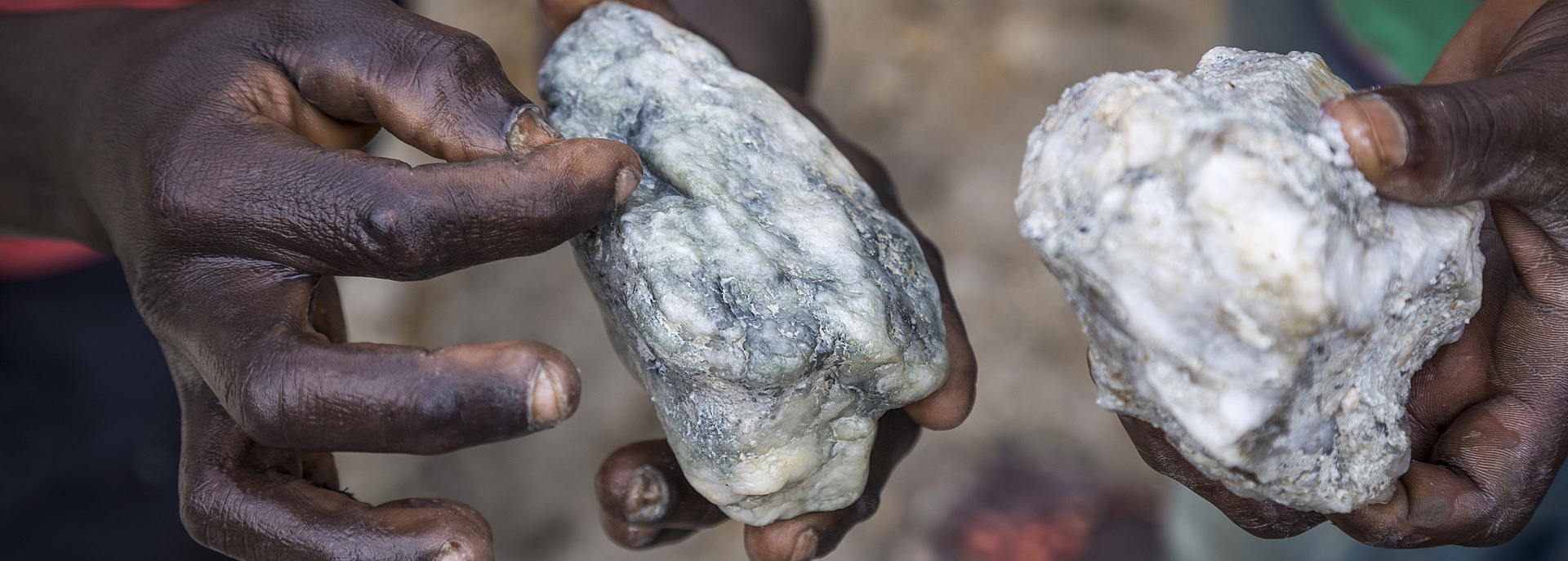
IMPACT on Cobalt
Just as we have promoted a legal and conflict-free 3T and gold supply chain that benefits artisanal miners and their communities, our efforts have expanded to cobalt.

We Reveal
Our research investigates the drivers of the illicit trade of conflict-prone minerals and highlights recommendations such as formalization of the artisanal mining sector, fiscal reform, harmonization of legislation, and strengthening of internal controls to end smuggling. We provide analysis of certification, traceability, and due diligence as they apply to minerals, such as cobalt.

We Innovate
As part of our work to transform the cobalt supply chain, we’ve led efforts to support traceability and due diligence for all minerals—including cobalt—while promoting benefits for the miners, their communities, and producing countries. We contributed to the development of the OECD Due Diligence Guidance for Responsible Supply Chains of Minerals from Conflict-Affected and High-Risk Areas and promote its implementation across the cobalt supply chain. We provide capacity building and sensitization to policymakers, civil society, and the private sector on their responsibilities with regards to international and regional regulations, as well as due diligence. We also work with stakeholders to develop strategies to improve controls and end illicit trade.

We Engage
We drive dialogue with international and local actors to promote traceability and due diligence for cobalt and to ensure the benefits of mining reach the miners and their communities. We provide sensitization and open dialogue on the needs of artisanal miners and restrictions they may face when entering the formal economy. We conduct significant outreach on women’s rights, especially their rights to access, control, and benefit from natural resources. We also promote sensitization and raise awareness among consumers about the origins of the cobalt in products they use
